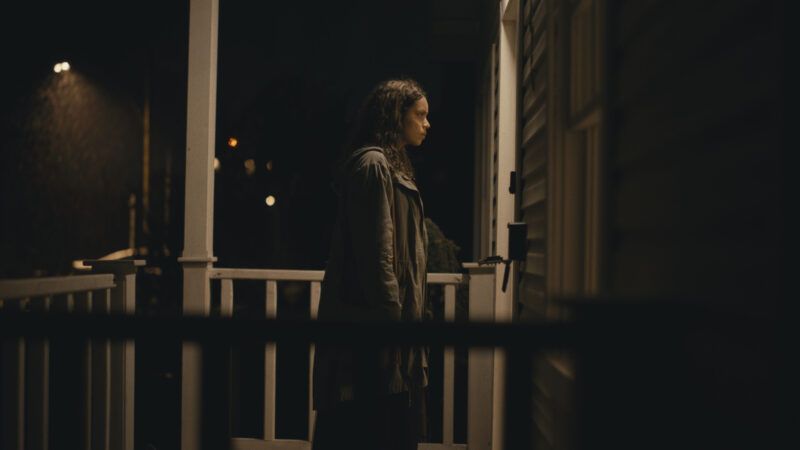Barbarian Is Nightmare Fuel for the Sharing Economy
The ultimate Airbnb horror story.

The sharing economy is built on trust. When you rent a house on Airbnb or one of its competitors, you trust that the house is real and looks something like the photos in the listing, that it will be reasonably clean and livable when you arrive, that the keys will be present, that the access codes will work. You may expect, of course, some minor hiccups, and most everyone has heard an Airbnb horror story or two, but for the most part, you expect that in the end, you will gain access to the residence and have a safe, comfortable place to sleep.
What you definitely do not expect is to show up and find your house already occupied by a stranger who claims to have rented the same place via a competing service. In the age of rental management middlemen and absent homeowners, it's a plausible enough snafu, and in an earlier Hollywood era, it might have produced a romantic comedy. In Barbarian, the clever, twisted, darkly comic, and surprisingly effective directorial debut from filmmaker Zach Cregger, it leads to the ultimate Airbnb horror story. And that's because Cregger understands that horror movies are themselves built on trust, and Cregger is determined to earn it.
Barbarian spends the first part of the movie establishing that trust with the audience. When Tess Marshall (Georgina Campbell) arrives at her Detroit Airbnb—she's in town for a job interview—and finds it occupied by a stranger, a mostly unassuming man named Keith (Bill Skarsgård), she doesn't make any obviously rash decisions. It's pouring rain, the neighborhood is sketchy, and aside from an overly strong eagerness to make her a mug of tea, Keith doesn't seem obviously threatening.
Meanwhile, she locks every door behind her and makes sure to surreptitiously photograph Keith's ID. She's a young woman in an awkward situation with a strange man; she's not taking unnecessary chances. The tension builds at a steady pace, and Tess never makes a false move, unless you count going into the house to begin with.
So even as Barbarian methodically chips away at the assumed trust in the short-term housing rental, it builds credibility in its central character and narrative. As a viewer, you end up trusting that Tess is smart and competent, and also that Cregger knows what he's doing with the story.
Yet what Cregger ends up doing is almost certainly not what you expect. Barbarian provides a rare viewing experience: It's a movie that genuinely keeps viewers guessing about where it's all going that actually pays off in the end. More than halfway through the movie I still had no idea where it was going. Yet it was clear that Cregger wasn't just winging it. This was a story with a plan.
My strong recommendation is to avoid spoilers at all costs before seeing this movie, which makes a number of narrative leaps beyond the twists the setup might lead you to expect. But without giving much away, I will say that Cregger is interested in delivering more than just a bad night at a creepy house rental.
Rather, he's interested in interrogating the system of assumptions—the system of trust—that not only makes parts of the sharing economy possible, but enables all sorts of seemingly ordinary human interactions, especially between men and women.
After all, when you stay at a sharing-economy rental house there's a lot you often don't know about the property, its history, the neighborhood, or even, given the role of management companies, the ownership. And when you interact with someone, whether it's a stranger or someone you work with, there's often a lot about them that you don't know.
If there's any relief to be found, it's outside the theater. In the real world, the systems of trust on which Airbnb-style sharing platforms are built typically work pretty well. That's why we get into Ubers and book vacation homes without thinking much about it, and don't automatically assume that strangers are violent menaces.
Barbarian, in contrast, takes that easy social and economic trust and exploits it with terrifying effectiveness. It's nightmare fuel for the sharing economy. Next time, book a hotel.

Show Comments (13)